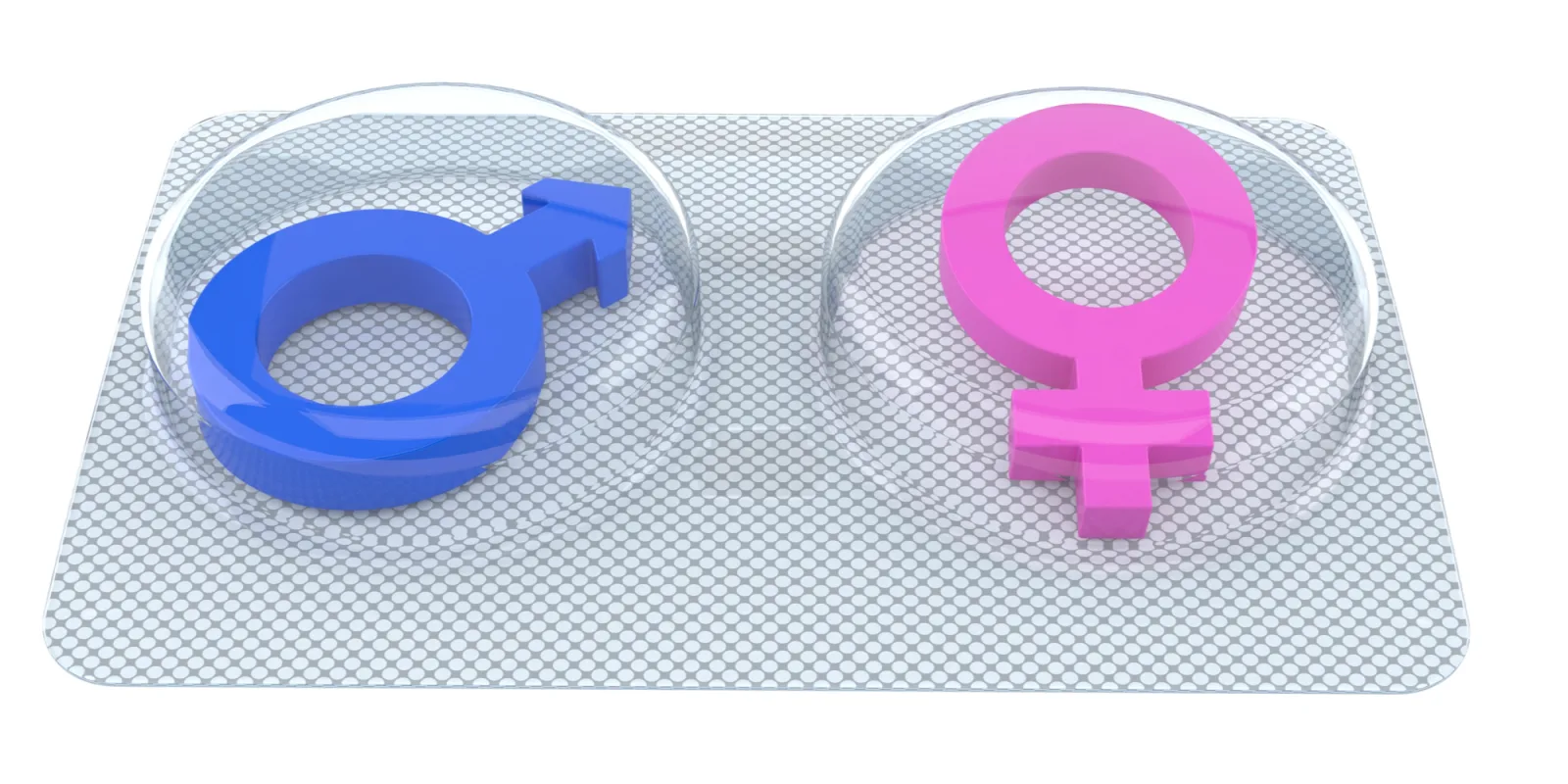
“…anything to divert sex from its natural end — and all over the country blared posters put out by the Ministry of Infertility, showing…an embracing pair of one sex or the other with the legend ‘It’s sapiens to be homo’. The Homosex Institute even ran night-classes.”
— Anthony Burgess, “The Wanting Seed,” 1962
In Anthony Burgess’ 1962 dystopian novel, “The Wanting Seed,” published the same year as his better known, equally dystopian, “A Clockwork Orange,” the setting is an overpopulated world in which homosexuality is not only encouraged by “the State,” it is richly rewarded. In addition to psychotherapeutic and psychopharmacologic interventions, there is significant financial incentive to “turning gay.” Promotions go to those openly and exclusively homosexual, as do tax breaks, and more so for those who undergo voluntary sterilization. Heterosexuality is increasingly discriminated against and eventually driven underground.
Critics didn’t really know what to make of this novel when it first appeared, and they still seem confused about it today. As the novel progresses there is eventually a heterosexual revolution such that society literally explodes in orgiastic frenzy, the cork removed from long-buried fecundity. Unleashed is an unstoppable turnabout. A panicked, but opportunistic, “State” quickly sanctions the new runaway “morality,” and the bureaucratic population seizes the new promotional opportunities, “converting” en masse to the newly “approved” sexual reorientation practices.
The novel is likely less a criticism of sexual practice than it is an overwhelming indictment of attempts at politicizing the bedroom.
In the current political climate here in the United States, New Hampshire will soon become the fourteenth state, plus the District of Columbia, along with dozens of municipalities and one school district to outright ban the practice of “conversion” therapies targeting minors — psychotherapies aimed at changing one’s sexual orientation — and several other states have some sort of similar legislation on the table. Although these legislative reactions have been hailed as significant political victories by gay rights groups, they have met with generally lukewarm to warm lip service by various medical societies and organizations. Mostly because there is really no conclusive evidence one way or the other that these therapies work, nor is there any hard evidence that the non-aversive therapies themselves are otherwise harmful.
At the same time, the belief that one’s gender can most assuredly be changed has gained near overnight acceptance, and there are any number of psychotherapies exploding onto this (financially lucrative) bandwagon. Even more dramatically, there are biological therapies, many of them irreversible, that have been flourishing as well, all — given the overbearingly tense political climate — without criticism.
In other words, if I am not comfortable as a male, I can demand, even as a prison inmate, that my gender be changed. And it is not within your purview (Dr. So-and-so) to talk me out of it. However, if I am not comfortable as a homosexual male, I run the risk, in several states, of criminalizing my therapist by even bringing up the possibility that my orientation be changed. Worse, as a patient seeking help, I am likely, conveniently, labeled “homophobic,” such that what therapist, in these cyber-totalitarian times, would even want to treat a jerk like me?
Adding to the tragicomic illogic of it all, is that, similar to sexual reorientation therapies, there is no longitudinal evidence of efficacy of any therapy for gender dysphoria other than treating the co-morbid psychiatric issues. As time inexorably lurches forward, however, evidence, both statistical and anecdotal, of significant negative outcomes to gender transitioning and reassignment continues to grow. (This is very similar to the other bizarre “double bind” handcuffing mental health specialists, in which the country is bemoaning an overwhelming opiate crisis on the one hand, while on the other lauding efforts to legalize cannabis and gambling.)
Indeed, to my knowledge the political momentum to ban any specific psychotherapy is a historical first. There is in fact precedent to legislating discussion in the exam room, thanks to Florida’s “docs versus Glocks” 2011 law banning physicians from discussing gun safety with patients (a law since struck down in 2016 by an appeals court). But the necessarily intimate nature of psychotherapies makes them different. And despite centuries now of stupid therapies, I am unaware of the outright banning of such practices by legislation. Despite centuries of stupid and misguided medical and surgical therapies as well, many of which continue, there has rarely been political outcry to ban, by legislation, those practices either.
This is not to say the government has never legislated medical practice. Abortion may or may not fall under this purview. But more recently, and dramatically, is the legislative approval of cannabis products for an incredibly large, politically motivated, roster of disparate medical and psychiatric disorders. A hodge-podge list of indications that far surpasses that of any other drug on the market, and all with absolutely no evidence base whatsoever. And as with the emerging actual evidence for accommodating unproven treatments for gender dysphoria, the longitudinal evidence playing out before our eyes for any efficacy of cannabis is near-universally negative (at least across the board for psychiatric disorders). Yet the anecdotal evidence, i.e. the “blog evidence,” certainly influenced by a fair amount of intoxication, continues.
But the bigger concern of legislating psychotherapy in this way is conceptual. It shuts the door on debate, on discussion. Sexual orientation is now officially black and white in several states, as is one’s sexual identity. To borrow the social media term, and the term that is generally, and unfortunately, anathema to any activism, “It’s (more) complicated (than this).” To understand the complication a little, consider that there are now eight “paraphilic disorders” listed in the DSM-5 (that is, the Diagnostic and Statistical Manual, Fifth Edition — psychiatry’s phenomenological version of the International Classification of Diseases — the rest of medicine’s snapshot diagnostic catalogue), with any number of qualifiers. A paraphilia is a generally non-pejorative term to describe “unusual” sexual behaviors and interests. This was a category that, understandably, gave the work group fits as normative sexual behavior and desire have become increasingly difficult to define. In fact, by some well-regarded definitions there are as many as 549 paraphilias. Even in a context as minimal as eight “disorders” long, to even consider conceptualizing sexual orientation as binary is not a return to the fabled “Dark Ages,” as no ancient or early culture believed in the fixity of such. Rather, this would be a wholly post-postmodern phenomenon sure to leave future historians scratching their heads.
But aside from the imposing of one authoritarian view over another, practically speaking, most of us — practitioners, that is — will never deal with the more egregious, and exceedingly rare, since the 1940s, cases of so-called aversion therapies or the like (except as occasionally practiced by questionably organized religion; that is, the Church of Scientology). But the potential litigiousness these laws open up around any discussion of sexual orientation or practice is a real danger to the psychotherapist, and thinking human beings.
As a child psychiatrist what I am now seeing is a “curiouser” phenomenon of children and adolescents who, seeking a more permanent sense of self, rather than wish to change their sexual orientation, now wish to change their gender to match their perceived sexual orientation, to provide themselves a semblance of “identity.” A sort of “reverse-conversion therapy,” and given the area in which I work (greater Boston) there are usually no shortage of providers to help them on their way.
And so the following little mind-game came up one day at work: Rather than take the arguably far more drastic step of converting one’s gender, what if someone were to (inadvertently) invent a pill that could magically change and limit one’s sexual orientation? And let’s say a male patient comes to you (the therapist) and lets it be known that he suffers from significant, debilitating distress over the fact that he is attracted only to other men. As an otherwise thoughtful modern male who likes to see himself as remarkably politically correct on most occasions, he stumbles all over himself with apologies. But in the end he makes it clear that his distress is such that if you cannot help him he will likely fall into a deep, perhaps suicidal, despair.
So, as a good therapist you do a little exploring. You learn that he has struggled with this for many years. As you suspect, there is a significant religious aspect to this presentation. A certain morality was drilled into the patient’s head from an early age, a morality he has practiced his whole life, and not something of which he is likely to be disavowed via brief supportive psychotherapy or cognitive behavioral therapy. It is clear that this young man’s faith is very important to him, perhaps defines him. He desperately wants to marry a woman, to have a family. There is no evidence of any psychosis.
Now, let’s say this sexual reorientation pill exists. It is effective, and the side effect profile is generally benign. Would you recommend it in this situation?
Let’s say the answer is no. Good-bye, good luck, all the best.
But this young man returns a year later, still struggling. No one in the mental health community has been willing to help him. This time he states he has sought counsel with his church. He has prayed long and hard, and has come to the decision that if he cannot change his orientation he wishes to change his gender. His “progressive-leaning church” is supportive of this decision, and he believes such a change will bring him some measure of peace. Now what would you do?
Politics and psychiatry generally do not mix well. From the bizarre “civil rights” coattails movement of the 1960s and 70s to do away with state mental institutions in favor of repeated incarcerations and endless cycling through acute-care hospitals, to the pathologizing and de-pathologizing of behaviors deemed acceptable at times and unacceptable at other times, psychiatry, and the rest of medicine, has taken to a “see which way the wind blows” stance on most issues. The real irony in this position is the willy-nilly tossing about of the ill-defined term, “evidence-based medicine.”
Which is all well and good, until the evidence itself becomes inconvenient.
Image: Talaj / shutterstock
Elliott Martin, MD, is a board-certified adult and child psychiatrist at Newton-Wellesley Hospital, as well as the Director of Consultation and Emergency Psychiatric Services at Newton-Wellesley Hospital, and Assistant Clinical Professor of Psychiatry at Tufts University School of Medicine. He is a 2018–19 Doximity Author.







